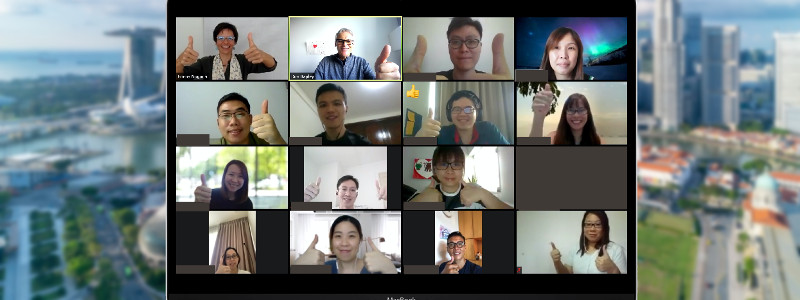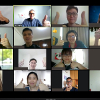Blog
One of the definitions of “Trust” (as a noun) is the belief that the other person is honest and sincere and will not deliberately do anything to harm you. Synonyms to trust are “confidence, credit, belief or faith” (collinsdictionary.com)
As you can see, trust, and its counterparts, is difficult to measure. It is subjective as it emerges from a common shared chemistry when two people interact. Often, we think it is outside our control, because ‘mutual chemistry’ may seem to rely on luck. After all, we can’t make the other person like us or trust us just because we want them to!
In our new Covid-19 context, networking is radically changing from physical in-person interactions to virtual meetings: either over video or audio devices, thus only relying on voice or seeing the person on a screen. A large part of the body language becomes more difficult to ‘read’ and as a result trust may take longer to emerge and be forged.
However, we don’t have to leave it all up to chance. There are ways to build trust effectively and consistently, be it over a virtual meeting or face-to-face, even within the span of a few minutes.
Here are my top four:
1) Eliminate all distractions - material and mental
Put everything aside to completely focus on the person in front of you, as if they were in the same room as us.
No other sources of distraction such as incoming emails, notifications or windows open on your screen. That also means keeping your thoughts in check and your mind fully focused on the conversation you are having. In an era where our attention span has dramatically decreased and multitasking has become the norm, it is difficult to do just that: focusing 100% of your attention on him/her.
Yet, it is the biggest gift you can give to another person as it is sending them the message: “You are important; therefore you have my full attention.”
2) Follow the 70-30 guideline: Listen for 70% of the conversation, and don’t talk more than 30% of the time
Make it a point to not speak more than 30% of the time. The rest of it is dedicated to listening to them. The cost of talking is not being able to listen.
It sounds counter-intuitive, especially for those of us who are highly extroverted or social, often verbose, to take a step back and just … listen. Yet the more you ask questions and get the other party to share their story, the more interesting they find you because they feel ‘important’ in your eyes. That’s a major trust building factor.
3) Use your voice, but use it to show genuine curiosity!
Ask follow-up questions to tell them you’re interested to know more about their sharing.
Smile and nod to acknowledge what they are saying. If you are on audio-only mode, you can do that by saying “I see…”, ”uh-huh” “Hmm, interesting…” etc. Don’t worry that you will come off as agreeing to everything they say. You can share your opinion in due time, but now is their time to shine.
A powerful, yet the most under-utilised, communication tip is to mirror what they say. Paraphrase what you’ve heard and confirm it with them. A simple “So what I’m hearing is that…” goes a long way in letting them know you are not just physically present in the conversation, but also processing what they say.
4) Mindset shift: You’re not there to sell, you’re making a new friend you haven’t met yet
Networking conversations, especially with someone new, should never be about selling your service or your product. If that’s your agenda, it’s unlikely you will be able to build trust.
People don’t like to be ‘sold to’ but they want genuine connections with like-minded people, first. They want to know you have their interests in mind. Think of it as how you would approach ‘friendship’ and come with that intent.
If we now explore “trust” as a verb, trusting becomes an active act. My take is:
“Trust someone new and trust they will trust you in return”
That is the beginning of any business relationship or friendship. It starts with mutual trust.
In summary, next time you want to actively build trust in a virtual networking conversation, ensure you eliminate all distractions (internal and external), don’t talk more than 30% of the time (make them talk more!), show genuine curiosity, and trust fully that the other person will reciprocate. You might not just get a new business contact; it might become a friend too!
Happy networking.
Emma Noguchi is an Associate Consultant of TYC (Transform Your Conversations), a leadership development organization focusing on empowering leaders with the skills to have better, more effective conversations with their teams. She coaches individual leaders and teams to build a coaching mindset and foster trust in their organizations. She lives in Singapore.






